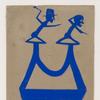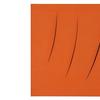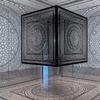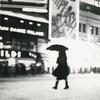Hammer's 'Stories of Almost Everyone' Examines Our Willingness to Believe Narratives of Contemporary Art
- LOS ANGELES, California
- /
- February 06, 2018
The Hammer Museum presents Stories of Almost Everyone, a group exhibition about our willingness to believe the stories that are conveyed by works of contemporary art. Exploring a dominant impulse in sculpture of the last decade, the exhibition highlights the work of artists who use found or readymade objects to convey social, political, and economic histories. Including over forty international artists, Stories of Almost Everyone is organized by Aram Moshayedi and is on view from January 28 through May 6, 2018.
Working within the legacies of conceptual and post-conceptual art, contemporary artists are often interested in objects that function as evidence of research and other forms of inquiry. Whether borrowed from everyday life or sculpted into new forms, the works in the exhibition address the role of narrative descriptions that artists, curators, or institutions produce to provide meaning. How do artists choose to speak on behalf of reticent artifacts and the otherwise inert by-products of material culture and the natural world? In what ways do museums and other institutions participate in the creation of meaning?
“Stories of Almost Everyone explores our natural tendency to project stories onto inanimate objects, including works of contemporary art we encounter in museums. This exhibition highlights the work of an international group of young artists whose sculptural work demonstrates the importance of language— and narrative—even in today’s hyper-visual culture,” said Hammer Museum Director Ann Philbin.
Embedded within the desire for meaning in art is a latent desire for narrative, for some semblance of stories that potentially shape an otherwise indeterminate experience. Stories of Almost Everyone is an exhibition that addresses the space of mediation by focusing on a broad range of art objects and artifacts of the recent past that have been re-contextualized through the lens of contemporary art.
“Contemporary art is uniquely positioned to convey the unofficial, unwritten, and minor histories of the recent past. Objects, it turns out, serve an essential function in telling these stories, in communicating other forms of knowledge that would otherwise be lost to history and that approach meaning from the other side of power,” said exhibition curator Aram Moshayedi.
Among others, the exhibition includes:
- a 2.02-carat, rough-cut diamond made from the remains of Luis Barragán, produced by Jill Magid in an attempt to have the late architect’s professional archive returned to Mexico;
- arrangements of cut flowers, reproduced by a local florist according to a protocol determined by artist Kapwani Kiwanga that approximate floral arrangements that played witness to ceremonies in which African countries gained their independence from colonial rule;
- a pile of mail addressed to Hammer staff that accumulates unopened during the run of the exhibition, according to the instructions established by Mungo Thomson;
- a selection of track suits designed by Dutch-Chinese designer Fong Leng, amassed by Willem de Rooij as part of a larger collection that reflects his artistic interests in culturally connoted objects;
- a ball of cocoa leaves chewed by Bolivian miners in Potosí recast into silver by Antonio Vega Macotela;
- a pillow that has only been slept on by the mayor of Nuremberg, authored as a work by Jason Dodge;
- a fragment of petrified wood from the studio of Carol Bove;
- a copy of the Los Angeles Times from each preceding day, situated on a block of walnut by Dave McKenzie.
An important component of Stories of Almost Everyone is a fictional audio guide by writer Kanishk Tharoor. Prompted by individual artworks, Tharoor’s contribution provides an alternative voice to complement and contradict the one adopted by the institutional framing. While audio guides most often provide further explanation and analysis, Tharoor’s textual vignettes treat the materials in the exhibition as narrative devices in the service of fiction, undermining the supposed authoritative voice of the museum.
For the exhibition’s catalogue, writers from a range of disciplines were invited to contribute short-form texts that engage with the themes of the exhibition from varied perspectives. The disparate voices address the power or inner life of objects, the collective desire for meaning, and the means by which narrative and storytelling partake in the strategies of exhibition and display.
Designed by Joseph Logan and Katy Nelson of Joseph Logan Design, the catalogue’s contributors include Aram Moshayedi (ed.), Julie Ault, Hannah Black, Jay Chung and Q Takeki Maeda, Emanuele Coccia, CAConrad, Helmut Draxler, Dan Fox, Donatien Grau, Boris Groys, Bruce Hainley, Gabriela Jauregui, Hassan Khan, Wayne Koestenbaum, Chris Kraus, Sarah Lehrer-Graiwer, Akira Mizuta, Lippit Daniel McClean, W.J.T. Mitchell, Sohrab Mohebbi, Linda Norden, Ikechukwu Onyewuenyi, Charles Ray, Mayer Rus, Lynne Tillman, and Alaka Wali.
Stories of Almost Everyone is organized by Aram Moshayedi, curator, with Ikechukwu Onyewuenyi, curatorial assistant. Visit hammer.ucla.edu for details or call 310-443-7000.
















